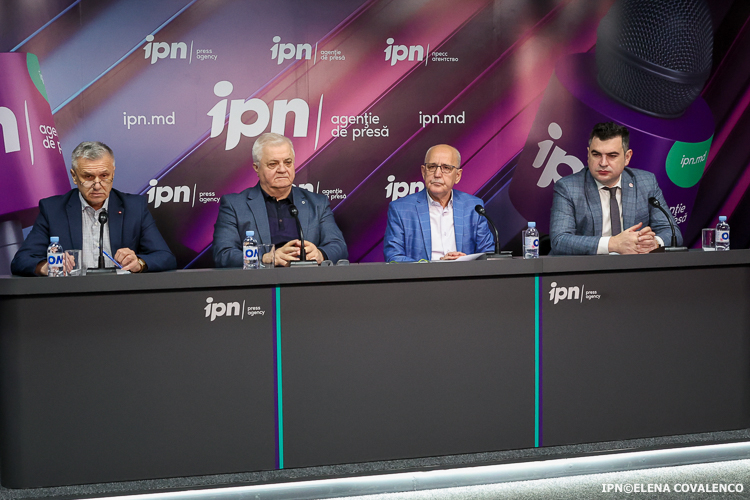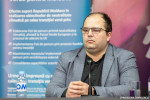
The campaign prior to the presidential election in Romania, in which Moldovans with Romanian citizenship will also participate, started at the end of last week. A week before this date, the first significant political moves related to the parliamentary elections in the Republic of Moldova were witnessed in Chisinau, even if these elections are to take place only in about half a year. These moves refer to the attempts by the unionist current in Moldova to overcome the state of dispersion that characterized it in the previous electoral cycles and to combine forces on a common civic and political platform, which also involves a common electoral list with which to finally reach the Parliament in Chisinau. The extent to which the announced initiatives can ensure a better electoral score for the unionist current, respectively, a seat in the future Parliament and how it can support the European orientation of the Republic of Moldova in a future parliamentary coalition were among the main topics discussed by the experts invited to IPN’s public debate "What is happening on the unionist political segment?".
The permanent expert of IPN’s project Igor Boţan said that ideologies are synthesis elaborations based on doctrines, meant to respond to the epochal challenges of the time, in the socioeconomic and political life of societies. Thus, ideologies represent the transition from theory to practice, since doctrines are fundamental philosophical elaborations about socioeconomic and political processes. "They are necessary for party founders to explain what kind of parties they want to found and based on what values. Ideologies are important for party officials, who work out programmatic documents, train party cadres and select implementers," explained the expert.
According to him, the main ideologies are liberalism, conservatism, socialism and its variations – communism, social democracy, etc. Unionism is a political current that emerged in the Republic of Moldova after the National Renaissance Movement (NRM) achieved a number of objectives – Latin alphabet, sovereignty, independence. The NRM appeared in 1988 after the adoption, at the 19th Conference of the Communist Party of the USSR, of the Resolution on the democratization of Soviet society, which actually allowed political pluralism, despite Article 6 of the USSR Constitution, referring to the leading and directing force of the CPSU in Soviet society.
"Unionism as a political current, a continuation of the NRM, appeared with the insertion in the statutory documents of the political parties of the objective of reuniting the Republic of Moldova with Romania. A landmark in this regard is the founding in December 2006 of the National Liberal Party, which was the first political party that introduced in its statutory documents the coming closer to Romania "by ensuring the freedom of the reunited Romanian nation – for well-being", said Igor Boțan.
Currently, eight parties explicitly promote unionism and stipulate it in their statutory documents. These are National Liberal Party, the Liberal Party, the Alliance for the Union of Romanians, the Union Republic, the National Unity Party, the Liberal Democratic Party, the Moldovan National Party, the National Reunification Party "At Home".
Doctor of History Anatol Țăranu said that the unionist movement in the Republic of Moldova is passing the extensive period. This is related to the fact that a number of political entities that embrace the idea of union, including at the level of the political program, are emerging. This period lasted too long and, in all probability, it is entering the phase of the intensive period, i.e. when it comes to the combination of unionists' forces, which could also produce an electoral result.
The Popular Front, the political movement that actually contributed to the achievement of Independence, included in its ranks a large group of people with unionist views and, first of all, this refers to that part of the Popular Front that was represented by intellectuals," noted Anatol Țăranu, a signatory of the Declaration of Independence.
In his opinion, intellectualism is that fertile environment where unionism develops best. This is due to the fact that unionism is based on the well-affirmed national consciousness, and the national consciousness also requires knowledge so as to overcome that harmful legacy left by the Soviet period and the tsarist period. At that time, identity reconstruction actions were carried out eastward the Prut, which led to a particular state of affairs among the majority population.
Anatol Țăranu noted that unionism is not a political ideology, but a political movement. Within this political current, there are people who share various ideological values. It is a national ideal by which these people abide and which goes beyond the limits of political ideologies and this is a distinct characteristic of the unionist current. "Unionism, in this case in the Republic of Moldova, comes to remove, to overcome particular gaps seen in history because of these circumstances witnessed by the Romanian space by virtue of the historical, political, geopolitical conjuncture, etc.," said the doctor of history.
Mihai Bologan, director of the sociological company Data Inteligente, said that on the unionist segment, there are two parties that actually promoted unionism and came to power – the Christian Democratic People's Party and the Liberal Party. The last one, 16 years ago, managed to achieve the highest electoral score of a declared unionist party in the Republic of Moldova. Thus, 16 years ago, a record national score for any political party declared unionist was reached.
Mihai Bologan noted that, probably, the way in which the respective parties governed the country and how they promoted the unionist ideas while in the governing coalition "or rather did not promote it", influenced quite a lot what happened later. "From a sociological point of view, we have, on the one hand, a large number of citizens who would vote for the union. I am referring to a segment of 30-35%, depending on the period of surveys. We still have an impressive number of people who would vote for the union. They do not form a majority for various reasons, but, practically, we do not have parties that represent them," explained the director of iData.
According to him, today the unionists vote with the ruling PAS party, which is not unionist and does not promote unionist messages. "Thus, a balance was reached when the people who would generally support the union with Romania found a party, which is rather pro-European. These voters hope that by getting closer to Romania within the European Union, this union will take place in one form or another."
As for the legality of unionism, Mihai Bologan said that "the Republic of Moldova is a consequence of the Ribbentrop-Molotov Pact. Respectively, there are quite many legal bases for this territory to reunite with Romania by the model of Germany, Italy, etc. I think there is also legitimacy because there was Greater Romania, a recognized state, and Bessarabia is derived from this state," added the director of iData.
The public debate entitled "What is happening on the unionist political segment?" was staged as part of the series of debates "Developing political culture through public debates". IPN Agency carries out this project with support from the German Hanns Seidel Foundation.












